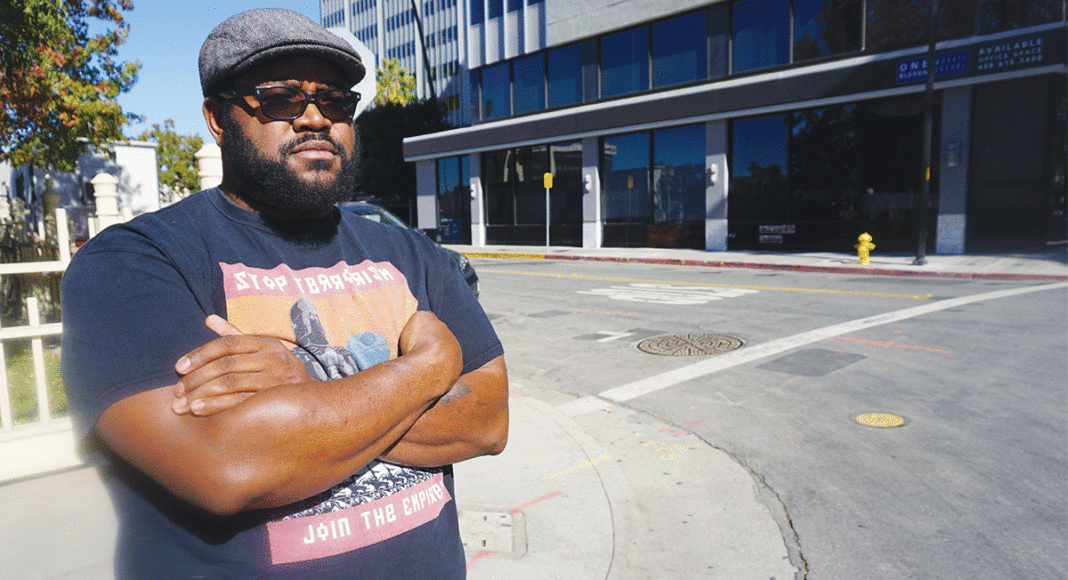California lawmakers last week unveiled a bill to reform the state’s money bail system, calling the profit-based status quo an injustice to the poor.
“California’s bail system punishes poor people simply for being poor,” Assemblyman Rob Bonta (D-Oakland) said in announcing the bill last Monday, the first day of the 2017 legislative session. “In many cases, if you have enough money to pay your bail, you can get out of jail regardless of whether you are a danger to the public or a flight risk. But if you’re poor and are not a flight risk or a danger to the public, you are forced to stay in jail even when the charge is a misdemeanor. That’s not justice.”
The alternative to the traditional money bail system is a computerized risk assessment that factors criminal history, record of showing up to court hearings, and other variables into a determination of whether an individual poses a flight or safety risk. Santa Cruz County has been ahead of the curve on this alternative approach over the last decade, and in 2014 volunteered to be a pilot program for newly refined software called Public Safety Assessment (PSA)-Court. Officials were so pleased with the results, they fully implemented the software in June of 2015, when the pilot program ended. Sara Fletcher, director of the Adult Division of the county’s Probation Department, says that creating and perfecting a system “that focuses more on the risk to the community than ‘do you have enough money?’” has been a priority.
“Not only because of jail overcrowding,” she says, “but because it’s just the right thing to do.” The consequences of unnecessarily withholding release on bail, she says, can be serious. “Research shows the longer you’re in custody, the worse your outcome,” says Fletcher.
Details of the California Money Bail Reform Act of 2017 are still being hammered out. But Bonta, State Sen. Bob Hertzberg (D-Van Nuys) and others sponsoring the bill said it would reduce the number of people locked up before trial.
Under state law, monetary bail is set based on a local fee schedule that factors in the severity of the alleged crime. Defendants can pay the assigned bail, pay a nonrefundable 10 percent fee to a bail bonds company or await trial behind bars.
About 63 percent of inmates in California jails, 45,000 in all, are pretrial detainees. In Santa Cruz County, that figure is generally lower—around 58 percent.
At a press conference organized by Bonta and Hertzberg last week, San Jose resident Ato Walker spoke about the price his family paid for a 2013 arrest on charges that didn’t even stick. Accused of resisting arrest, his bail was initially set to $165,000 before getting bumped down to $85,000. He spent five days in jail until his mom—a retired postal worker—pulled $8,500 from her 401(k) to bail him out.
“We’ve lived poor, scraping by all that time,” said Walker, a 37-year-old father of one. “For her to take that money so that I could be there for my family, so that I could support my family … I was really happy that I was able to get that support.”
After several months, the District Attorney’s Office dropped the charges against Walker. A year later, he sued the San Jose Police Department for excessive force. The case ended with a $30,000 settlement that allowed him to pay his mom back.
“But not everybody has that opportunity,” Walker clarified at the presser. “So I want to thank all these legislators for stepping up and making sure that all us people who grew up poor and live poor can have some type of justice.”
According to the American Civil Liberties Union, which has been pushing for statewide reform, about 80 percent of jail deaths occur in pretrial custody. Of those, about a quarter are suicides. Reformers also point out that pretrial incarceration increases the likelihood that a person pleads guilty. Bearing the brunt of inequities in the cash bail system—and other policies that lead to mass incarceration—are communities of color.
“This is a racial justice issue,” Lt. Gov. Gavin Newsom said at the press event. “I think that’s self-evident. This is an economic justice issue. … This is a profoundly important moment in criminal justice reform in this state, and, I would argue, this country.”
Debate over bail reform has taken place in legislatures and courtrooms throughout the nation in recent years. Two lawsuits filed in federal courts in California have taken aim against statewide bail practices in Sacramento and San Francisco.
“They were sued—and I’m glad they were sued—for their money bail system,” Newsom said. “There are seven states that have been sued, municipalities across the country that have been sued to reform. It’s unfortunate that’s what it takes, but here we are, and it’s a very good and positive thing.”
Bonta says the California Money Bail Reform Act is the next step toward fixing a broken system.
“We need evidence-based reforms that accurately assess someone’s risk to the public and their likelihood of showing up for their court hearings,” Bonta said. “Right now, money bail is just an indicator of a person’s wealth.”
Additional reporting by Steve Palopoli.














“Accused of resisting arrest, his bail was initially set to $165,000”
What? for resisting arrest? Something’s missing here, tell us more.
“The alternative to the traditional money bail system is a computerized risk assessment”
OK, so we are not going to trust a Judge to make these decisions? a COMPUTER WILL?
“This is a racial justice issue…This is an economic justice issue. …”
No Gavin, this is a criminal issue. If you do a crime, you get arrested. Cops don’t just arrest whoever they like, there has to be some good reason. That is why we have a bail system. You don’t like the bail system? then just get rid of it (with the 66% vote) and there: You will have equal justice.